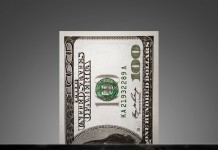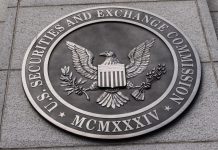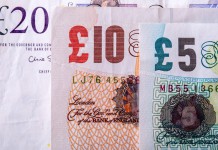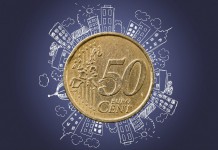Little change in Fed outlook
 The move to bring in Jay Powell as Chairman of the Federal Reserve is beginning to look like change of changes sake as President Trump completes a clean sweep of those who held office in the previous administration.
The move to bring in Jay Powell as Chairman of the Federal Reserve is beginning to look like change of changes sake as President Trump completes a clean sweep of those who held office in the previous administration.
Mr. Powell made his first address to Congress yesterday and said nothing that could be seen as changing the policy or path for interest rates that had existed under Janet Yellen.
Powell observed that the U.S. economy is starting to grow at close to trend and is benefitting from a nascent period of global growth that the U.S. is both contributing to and benefitting from. He sees the employment market as tight and getting tighter which will contribute to higher wage inflation, the start of which was seen in December’s data.
The Fed Chair alluded to the recent volatility seen in the markets and expressed mild concern over ETF’s but generally said he believes that the current strength being seen in the economy won’t be blown off course.
The dollar index reacted positively to Powell’s comments and will now await the release of the employment report which isn’t released until the end of next week for confirmation of the trend in wage inflation.
Sterling at a crossroads
The pound appears to have reached its highest point following the rally created by a more hawkish Bank of England. It is difficult to explain the change that has been seen in the MPC since last November’s “dovish hike”. It seemed at the time that Governor Mark Carney had managed to pull together opinion to foster agreement that a one-off rate hike, which in any event, could be easily reversed, would suffice to halt the advance in inflation.
Since then even the most dovish members of the MPC have been making statements about the need for further rate hikes if inflation is to be finally brought under control. That sentiment is probably right ion reflection but doesn’t consider Brexit. Possibly that is the correct attitude for the Bank to take since they cannot influence when or how Brexit will finally happen and as such must consider those economic factors that are able to influence.
This has left the pound at something of a crossroads. Traders have got the message and have discounted the fact that there is a very high probability of a rate hike at May’s meeting. But the question is; what happens next? Will the MPC want to continue to tighten? How will inflation react to a weaker pound, if that happens?
Draghi living the dream
The models that shape the monetary policy actions of the ECB must be working overtime if they are able to make sense of what is happening economically within the Eurozone. There are widely ranging views of how the economy is going to look in a years’ time depending on the outlook of who you ask.
In Germany, the Bundesbank is very concerned about inflation. It sees the headline climbing to 2.5% by the end of the year if the ECB remains impassive.
The Banque de France sees a less violent increase but does feel that a reduction of the Asset Purchase Scheme will be needed. So far, the ECB economists want to rely on exchange rate to control inflation, but it is a fine line since too strong a currency will cut off the weaker economies ability to export. There, is of course, a significant amount of intra-Eurozone trade that currency has no influence over but as employment improves, wage inflation will grow.
The common currency has fallen back from the 1.2520 high which was starting to concern the ECB and having broken below 1.2280 yesterday the Central Bank can breathe easy again.

















